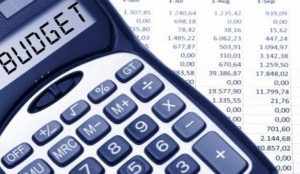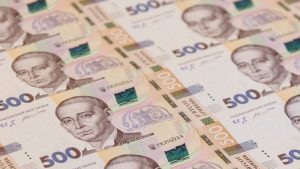
State budget revenues in August 2020 amounted to UAH 100.2 billion, which is 15.2% higher than the planned figure and 14.3% higher than last year’s level, according to data from the State Treasury Service.
According to the agency, the general budget fund received UAH 85.4 billion in July, which is 19.7% more than the plan and 10% more than in August 2019. According to the service, in general, in January-August 2020 the state budget received UAH 688 billion, which is 2.8% less than the target, but 2.5% more than last year’s figure for this period.
In particular, the general fund for the eight months of this year received UAH 594 billion, the backlog of the plan was 3%, but this figure corresponds to the level of the eight months of 2019.
Customs in August brought almost UAH 26.9 billion, which is 1.1% more than the plan and 6.5% higher than in August 2019. Following the results of the eight months, customs receipts amounted to UAH 177.6 billion, lagging behind the expected level by 15.9%, and from last year’s level by 13.8%.
Tax revenues in August exceeded the plan by 33.2% and were 12% higher compared to August last year, amounting to UAH 56 billion. In the eight months, the tax service overfulfilled the plan by 5.3% with the revenues being UAH 356 billion, which is 17.3% more than in January-August-2019.
According to the service, VAT refunds in August fell to UAH 8.57 billion compared to UAH 9.13 billion a month earlier.

The deficit of the national budget of Ukraine amounted to UAH 40 billion in January-August 2020, the Finance Ministry said citing recent data of the State Treasury Service of Ukraine.
The deficit of the general fund totaled UAH 51 billion.
According to data of the State Treasury Service, expenses for the general fund amounted to UAH 646.6 billion, or 87.4% of the reporting period’s breakdown.
“A total of UAH 208 billion was raised from issuing government domestic loan bonds for financing state debt – 13.2% of the plan, including UAH 84.6 billion or $2.4 billion and EUR7 million from government domestic loan bond issues denominated in foreign currencies,” the ministry said.
Some UAH 170.3 billion was raised from external sources, which corresponds to the plan, including UAH 55.4 billion from placement of 12-year eurobonds worth $2 billion at 7.253% per annum, UAH 55.2 billion from the first tranche from the IMF in the framework of the 2020 Stand-By Arrangement, UAH 33.8 billion from placing ten-year eurobonds worth EUR1.25 billion at 4.375% per annum, UAH 15 billion in macro-financial assistance funds from the European Union, and a loan of UAH 1.35 billion from the International Bank for Reconstruction and Development in the framework of the project “Modernization of the Social Support System.”
A total of UAH 275 billion was allocated for paying off state debt, which is 99.9% of the amount planned.

NJSC Naftogaz Ukrainy and its member companies paid UAH 77.9 billion in taxes and fees to the state budget in January-July 2020 (including the balance of dividends for 2019), the company’s press service has reported.
According to the report, revenues from the group amounted to more than 17% of the total state budget revenues for the specified period.
As reported, NJSC Naftogaz Ukrainy and its member companies paid UAH 121.4 billion in taxes and dividends to the state budget in 2018.
Naftogaz Ukrainy unites the largest oil and gas companies in the country. It is a monopoly for storing natural gas in underground storage facilities, as well as for transporting oil by pipeline across the country.

PJSC Donbasenergo in July 2020 transferred UAH 68.4 million of taxes and other mandatory payments to the state and local budgets, which is almost 1.8 times more than in July 2019 (UAH 38.3 million).
According to the press release of the company, UAH 59.6 million (VAT and other state taxes) were transferred to the state budget and UAH 0.2 million to the local budget of Donetsk region.
The company has also paid UAH 8.6 million of excise duty, which is 3.2% for every UAH 1 per kWh of generated electricity.
As reported, Donbasenergo in 2019 reduced electricity production by 2.4% (by 84.5 million kWh) compared to 2018, to 3.371.7 billion kWh. In the overall structure of electricity generation in Ukraine for the year the company occupied 2.2% of the market, in the structure of thermal power generation – 7.5%.
Donbasenergo owns the Starobesheve Thermal Power Plant (TPP, located in the occupied territory) and Sloviansk TPP with their total installed capacity of 2,880 MW, including the capacity of Sloviansk TPP – 880 MW. At the end of March 2017, the general company announced the loss of control over the operation of Starobesheve TPP, as well as part of the structural units located in a temporarily occupied territory.
PJSC Energoinvest Holding owns 60.86% of Donbasenergo shares, another 25% of the general company is owned by the state. Currently, the company is controlled by Maksym Efimov.

Privatization of large-sized enterprises in Ukraine could bring $1 billion to the national budget in the coming years, Ukrainian Prime Minister Denys Shmyhal has said.
“We also have high expectations from large-scale privatization, which should bring about $1 billion to the budget in the coming years,” the prime minister said during a government meeting on Wednesday.

Changes to the registration of vehicles, initiated by the Interior Ministry of Ukraine, which, in particular, prohibit the registration of cars with salvage titles imported from abroad, will create problems for companies involved in this business, will make it impossible for Ukrainians to buy such cars with a clear history at reasonable prices and also entail losses of the national budget in the amount of at least $327 million, according to Columb Trade company.
“Now more than 90% of cars with salvage titles come to Ukraine with such documents (marked for recycling), but in fact they have minor damage (lighting, bumpers, wings) and after restoration pass certification in authorized bodies. The proposed changes may replace the functionality of certification bodies, while citizens are deprived of the opportunity to purchase a car with a clear history of origin,” Roman Voloshin, a lawyer of the company, said at a press conference at Interfax-Ukraine.
He emphasized that in general the draft resolution, posted on the website of the Interior Ministry for discussion, contains many positive norms that will simplify the process of registration (re-registration of a car), however, two provisions on the prohibition of registration of cars with salvage titles, as well as on the need for mandatory translation of accompanying documents to the official language with an apostille will create chaos in the market, will entail additional costs for buyers and budget losses.
“Only the requirement of compulsory apostille, according to our calculations, will lead to additional costs for buyers of $200-300,” Voloshin said.
According to the calculations cited by Columb Trade co-founder Volodymyr Kovel, about 36,800 people who want to buy a car from abroad can suffer from such innovations (registration ban).
“The transit of a car from the United States takes three months, and the average monthly supply is 10,000 cars. Now 30,000 cars are in transit. Even minor repairs, taking into account certification and registration, take about a month. Respectively, there will be 40,000 such cars, not yet registered, of which 92% with the status of to be recycled, that is, 36,800 cars,” Kovel said.
He considers it incorrect to take into account the status of recycling, which the United States accept for itself, since there it is done by the method of financial accounting of the residual value of a car, while the damage can be minor and in Ukraine they can be repaired for $2,500-3,000.
Kovel stressed that these restrictions will not force Ukrainians to refuse buying cars from abroad, and they will be forced to buy the same cars from the United States, for example, in Georgia or Latvia, where this business has long been established, but then they will serve the orders of Ukrainians and get receipts from customs clearance and other fees going to the budget of their countries. As a result, the car will cost a Ukrainian almost $3,000 more, taking into account the extension of the logistics chain, the need to bring cars from neighboring countries and other expenses.